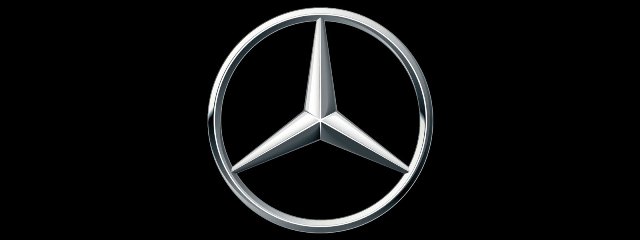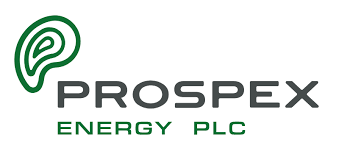Sign up for daily news updates from CleanTechnica on email. Or follow us on Google News!
Altilium, a UK-based clean technology group focused on supporting the transition to net zero, has announced details of the latest advances in its innovative EcoCathode™ hydrometallurgical recycling technology, with breakthroughs in the recovery of lithium from new battery chemistries and the production of cathode active materials (CAM) from a mixed feed of lithium scrap.
Altilium is the only company in the UK recycling and upcycling old EV batteries to high nickel P-CAM and CAM for direct reuse in new EV batteries. With the growing demand for lithium-ion batteries, the company is developing a domestic, sustainable source of battery raw materials for the UK, reducing reliance on imported materials from China and helping to decarbonise the UK transport sector.
Leveraging its proprietary EcoCathode™ process, Altilium has successfully processed LFP batteries, recovering over 97% of the lithium, marking a significant step towards for sustainable battery production and recycling.
Recovering lithium at high efficiency is a significant breakthrough, as it improves the economics of recycling LFP batteries, which are expected to make up over 40% of the global market by 2030.
Altilium has also delivered the latest generation of its CAM, recovered from old NMC111 battery chemistries and production scrap, for testing at Imperial College London. This marks the first time that Altilium has produced an advanced NMC 622 high nickel chemistry from a mixed stream of lithium scrap.
Using the EcoCathode process, Altilium’s latest generation CAM has the potential to extend the lifespan of these batteries, while also reducing the carbon emissions by 60% and costs by 20% compared to virgin raw material, contributing to the creation of more efficient and environmentally friendly EVs.
The material has been sent to Imperial College London for electrochemical performance testing and chemical analysis as part of a collaborative R&D project with a leading automotive OEM.
Altilium has now demonstrated its ability to recycle both LFP and NMC batteries, which will be critical to developing an economically viable circular economy for battery materials in the UK. As lower cost LFP batteries become more widespread, battery recycling businesses will need to find ways to process these new battery chemistries, which have traditionally been less attractive to recyclers.
Altilium’s first mega-scale recycling facility, which will be located in Teesside, has been designed to process a mixed feed of battery chemistries, including LFP.
NMC batteries, which contain lithium, nickel, manganese and cobalt, are currently the dominant chemistry in the UK. However, LFP batteries, which use lithium iron phosphate as the cathode material, are becoming increasingly popular with automotive OEMs and battery manufacturers, as they look to reduce their reliance on scarce materials, such as nickel and cobalt.
The shift to LFP batteries presents a challenge for battery recyclers, as the iron and phosphate are less valuable then nickel and cobalt, which makes the economics more challenging. As a result, LFP batteries are currently less likely to be recycled. One way to address this is by recycling more of the lithium, which is a high-value material and can be reused in the production of new CAM.
Altilium is also able to recycle the graphite, for reuse in the production of new anodes, which further improves the economics. While the iron and phosphate are less valuable, they can still be recovered for reuse in other industries.
Altilium COO Dr Christian Marston commented: “At Altilium we are committed to developing innovative new technologies as we look to build a domestic supply chain for the lowest carbon battery materials. By optimising our technology we are resolving some of the economic challenges around recycling LFP batteries and also demonstrating our ability produce high quality CAM.”
High-efficiency recovery of lithium also aligns with EU Battery regulations, which set a target for minimum recycled efficiency of 80%.
By recycling to CAM, Altilium will be able to offer a closed loop solution to OEMs and cell manufacturers, with EV battery collection from the final holder, processing of waste batteries and chemical refining to battery-ready, sustainable materials for direct reuse in the production of new batteries.
According to the Advanced Propulsion Centre, UK battery demand is forecast to reach 91 GWh per year by 2030, to support the production of 1.2 million EVs a year. In order to meet this demand, the UK will require 163KT of CAM per year.
Currently there is no at-scale CAM manufacturing capability in the UK. Altilium’s Teesside recycling plant will produce 30,000 tonnes of CAM a year — enough to power 20% of new EVs produced in the UK by 2030.
Processing battery waste from black mass to CAM multiplies the value of the material. However, UK produced black mass is typically exported to Asia for processing, leading to loss of revenues and critical resources.
Reducing reliance on imported materials from China and helping to decarbonise the UK transport sector.
The research on LFP batteries has been carried out under a project in partnership with Imperial College London and supported by the Faraday Battery Challenge.
Altilium is using green chemistry and advanced materials science to give a domestic, sustainable source of battery raw materials for UK industrial resilience from recycling lithium-ion scrap, closing the loop on an EV battery supply chain. The EcoCathode process could reduce carbon by over 60% and cost by over 20% compared to virgin material. Also recycling reduces the need for mining, saving our natural resources. By repurposing and refining old EV batteries, Altilium is not only reducing waste but also contributing to the development of more efficient and eco-friendly energy solutions.
Thus building a domestic, sustainable source of battery raw materials for UK industrial resilience from recycling lithium-ion scrap, closing the loop on an EV battery supply chain.
With the growing demand for lithium-ion batteries, Altilium is using advanced materials science to give a domestic, sustainable source of battery raw materials for UK industrial resilience from recycling lithium-ion scrap, closing the loop on an EV battery supply chain.
Press release from Altilium
Have a tip for CleanTechnica? Want to advertise? Want to suggest a guest for our CleanTech Talk podcast? Contact us here.
Latest CleanTechnica.TV Video
CleanTechnica uses affiliate links. See our policy here.





